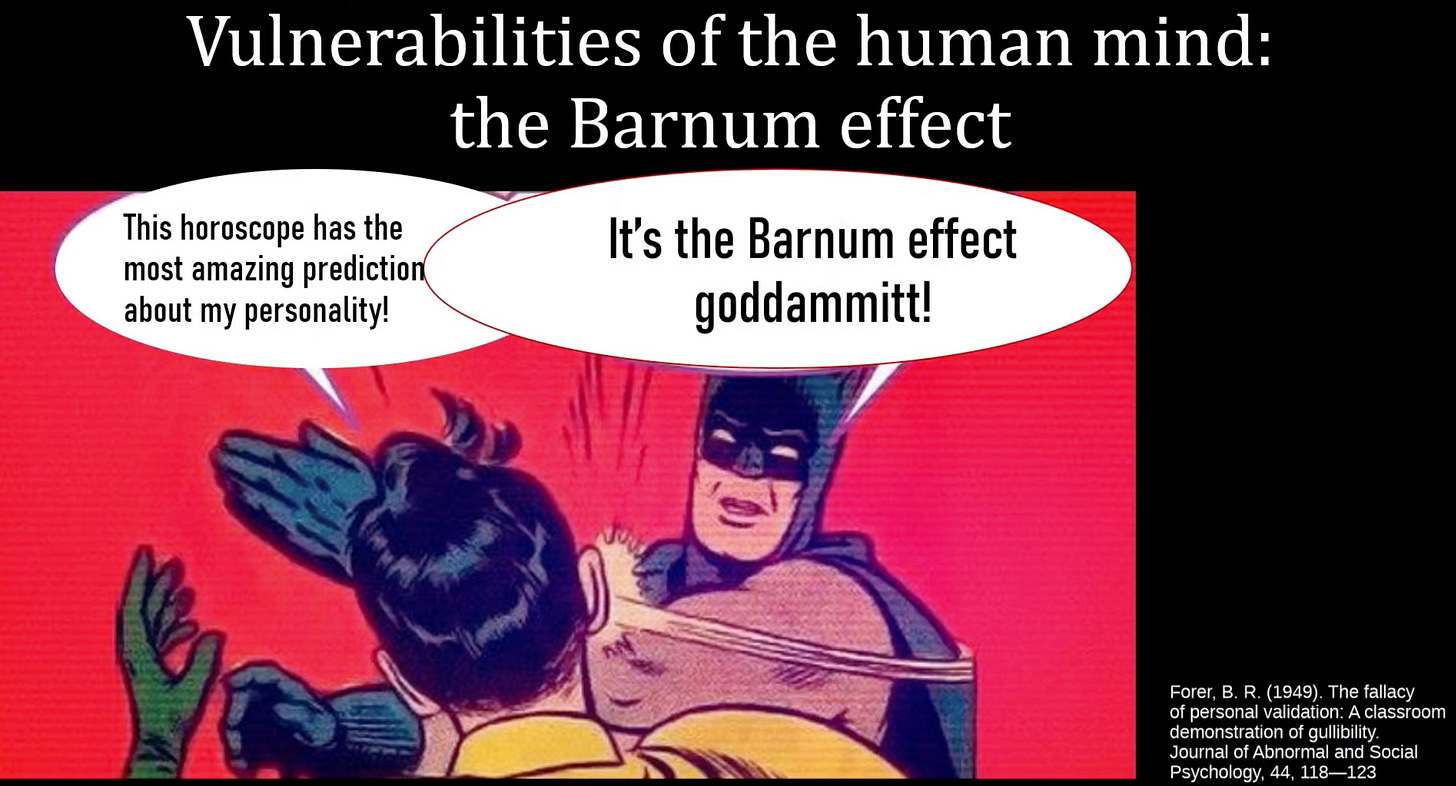In experiential inoculation1, a teacher intentionally deceives their students and then provides a debriefing to help them learn how to identify misleading techniques. A demonstration that imparts the experience of being fooled can spark humility, curiosity, and a desire to learn, much like a magic trick. How did the trick work? Why did it fool us? What vulnerabilities did it exploit?
Applications
Find or create a false narrative about a topic of focus. Present it to your students at face value and notice if any of them seem skeptical about it. If so, ask them why and lead toward a debriefing. If not, eventually pivot toward revealing the flaws in the narrative.
Use the Barnum Effect:2 Have students do a short personality test. Later, distribute fake “personality results” constructed from astrology readings. Pretend these are individualized, but give everyone the same thing. Ask the class if they found the reading relatable. By a method of our choosing, reveal to them that they were all given the same result. This demonstration was first performed by Bertram Forer in 1949.3

Notes
Experiential Inoculation is a new concept4 and has not yet been extensively researched, however, ample research on psychological inoculation5 suggests that this approach should be useful. In English, Social Sciences, and Psychology classes, you can use experiential inoculation to introduce lessons on rhetoric, persuasion, and manipulation. In science classes, you can use it to introduce lessons on scientific methods and evidence-based reasoning. Whatever the case, it’s crucial that you thoroughly debrief. Make clear that your attempt to fool them was only to produce a teachable scenario and emphasize the importance of responsible communication. In any case, try to keep these lighthearted or even funny.
Learn More
The Fallacy of Personal Validation: a classroom demonstration of gullibility by Bertram Forer
For all the modules in one place, visit our What Works to Build Mental Immunity Website page! See what’s to come and download PDF versions of these modules.
This post is part of our “What Works” series for educators and researchers.
We are open to incorporating feedback into these modules before we publish them on our website. Please comment on this post to provide suggestions. We’re particularly interested in additional applications, resources, and readings. All constructive feedback is welcomed. Thank you!
Skeptical Inquirer, Inoculating Students against Misinformation by Having Them Create It and Journal of College Science Teaching, Combining Different Inoculation Types to Increase Student Engagement and Build Resilience Against Science Misinformation
The Decision Lab, Why do we believe our horoscopes? The Barnum Effect Explained.
see footnote 1; experiential inoculation was first coined in these papers
Journal of Medical Internet Research, Psychological Inoculation for Credibility Assessment, Sharing Intention, and Discernment of Misinformation: Systematic Review and Meta-Analysis; Experiment 3 of Dispelling the Illusion of Invulnerability: The Motivations and Mechanisms of Resistance to Persuasion


